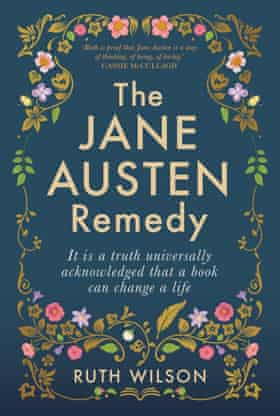Life begins at 40, my father used to say. He drew that particular piece of popular wisdom from a self-help book, written by Walter B Pitkin and published in 1932. Only 50 years previously 40 had been the end-of-life expectation, so naturally my father was relieved that it had risen to 60.
Pitkin’s claim was based on the belief that the benefits of modern life, having resulted in improved standards of living, would give people, women and men alike, many more years of productive existence, provided they adopted a properly positive attitude to life. The latter my father had in abundance.
As I approach my 90th birthday I have good reason to remember my father’s mantra, recognizing that my own life began, or perhaps began again, at 80; twice the age that he welcomed, and for a reason that many people might find puzzling. So let me explain.
Thanks to a rereading of Jane Austen’s fiction I have experienced a rejuvenation of spirit and energy that has transformed my life. Re-reading for the sheer pleasure of Austen’s language and characters when I experienced some depression in my 60s initiated a process that became more serious as I continued to re-read the novels in my 70s and became more and more curious about the relationship between reading , learning and the imagination.
In my eighties I reappraised Jane Austen’s fiction in a doctoral thesis, and was commissioned to explore my own identity, dispositions and values in a recently published reading memoir.
Now I find that the processes of rereading, investigation and reflection have led me to the best time in my life. Reading memoirists raised issues in my mind about memory, telling truth and artistry. In weaving together these aspects of my own reading experiences in my thesis, I discovered parts of myself and aspects of my most intimate relationships that I had not previously explored.
On the one hand I felt removed sufficiently to take stock of the best and worst of times in my life. And on the other, I became deeply immersed in the reflective process. I was surprised to realize that longstanding dissatisfactions were evaporating around me. I was experiencing waves of exhilaration while my level of wellbeing soared beyond anything I had previously known. While writing the memoir, reading, writing, and rereading occupied my days and gave them added meaning.
I have been a “reading and response reader” since childhood, feeling my way into books and emerging sometimes as a different person; often a happier one, having experienced the sweetness and usefulness of literature described by the Roman poet Horace.
From the beginning I was reading in spirals, a concept devised by the reading theorist, Louise Rosenblatt. She imagines a series of arcs as readers shift their attention from the words on the page to their own reservoir of experiences and memories; then back to the words before continuing with a deeper sense of engagement.
I came to Rosenblatt’s transactional reading naturally but it can be taught. Young readers can be encouraged to catch themselves in the act of feeling even as they discover new ways of thinking about the world and their place in it. This resonates with Horace again: in his Ars Poetica he wrote that what we feel and what we learn when we engage with literature are intricately connected and should not be separated.
Horace’s belief has been affirmed by current research in the field of neuroscience. In the field of education a number of researchers affirm that rereading is different from initial reading, something that lifelong readers have discovered for themselves.
Vivian Gornick, novelist and literary critic, recalls her responses to the novel Sons and Lovers at different ages: reading DH Lawrence’s coming-of-age story in her late teens she identified with Miriam, young Paul Morel’s virginal girlfriend. In her thirties, following a failed marriage and the discovery of her own sexuality, she identified her with Paul’s erotic mistress. And later still she identified with a more mature Paul, the male protagonist who learns the value of self-scrutiny and embarks on a quest for self-knowledge.
Of course, to be worth rereading, novels must have the potential to yield new insights, personally and culturally. For this reason I have reread Austen’s same six novels many times. They have offered me the richness and complexity required to help me re-assess where I am in my life, the quality of my relationships past and present, and the values at stake in my life choices.

When I read Pride and Prejudice at the age of 15, I read it as a domestic comedy; I loved the Bennet sisters because they were lively and, for all their bickering, they were having fun. The girls bore with their mother’s nerves and tolerated their father’s sarcasm without giving way to resentment. That helped me as an adolescent.

Rereading the same novel in my 30s when I was assailed by ambivalent feelings about where I was in my life I put my attention elsewhere. I paid serious attention to the nature of intimacy, considering whether prudence should override passion as Mrs Gardner counsels her niece Elizabeth; or whether I could reconcile myself to Charlotte Lucas’s view that happiness in marriage is a matter of chance.
At the age of 90 (almost!) I reread, ponder and console myself with Elizabeth Bennet’s words, “till this moment I never knew myself”. This is the moment I have been waiting for.
www.theguardian.com
George is Digismak’s reported cum editor with 13 years of experience in Journalism